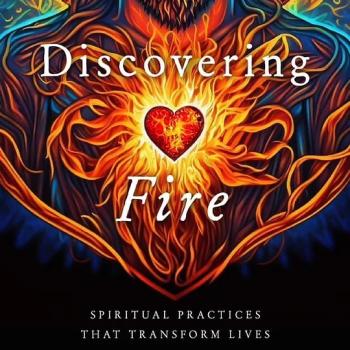 It’s an election year in the U.S. and and since Christians comprise the majority of the electorate, it is largely Christians who will determine the winners of those elections — and the direction that our nation takes. How, and whether, we vote matters. I’ve long since given up aspirations of running for elected office, but I am an engaged citizen and I feel called to share how Christian values and perspectives inform politics and social policy.
It’s an election year in the U.S. and and since Christians comprise the majority of the electorate, it is largely Christians who will determine the winners of those elections — and the direction that our nation takes. How, and whether, we vote matters. I’ve long since given up aspirations of running for elected office, but I am an engaged citizen and I feel called to share how Christian values and perspectives inform politics and social policy.
The following is a message that I wrote and delivered to the people of Heritage UMC, the church I was serving in 2004 in Littleton, CO. Sadly, while the statistics cited are dated, they haven’t changed much at all. [Note: The section that addresses fair trade coffee draws from a sermonette written by Rich Aronson[1] and portions of the last few paragraphs are paraphrased from the last chapter of Jim Wallis’ book The Call to Conversion].[2]
*****
“Peace With Justice: Band-Aids Aren’t Enough!”
Amos 2:6-7a; 4:1-2; 5:7, 10-12; 6:1, 3-7, 12b & 5:24
It’s been said that a pastor’s job is to “comfort the afflicted and to afflict the comfortable” and well — as our friends from Texas might put it — I’m fixin’ to do a little bit of both of those things this mornin’!
It seems like my 3-year-old boy Andrew needs Band-Aids all the time! I’m tellin’ ya, the kid has lots of boo-boos and owies! Nearly one a day! It’s almost always due to him wiping-out in the driveway on the green plastic scooter that a certain set of grandparents bought him!
I could just keep putting those Band-aids on him day after day, or I could do something to prevent those injuries from taking place in the first place! I could try to find him some little toddler-sized kneepads. I could buy him some private green plastic scooter lessons! I could try to make a new rule not allowing him to ride it anymore — Yeah, right! Or, I could “accidentally” forget where that green plastic scooter is one night and then “accidentally” back over it with our minivan the next morning! Pretty tempting!
The point is, there’re all kinds of options, and I don’t really have to keep on putting those Band-aids on him if I can prevent him from having all of those accidents to begin with!
It reminds me of a parable I know. A man from a village was standing by a river and he saw a baby floating in the water. He let out a yell, dove into the water, swam out, grabbed the child, and swam back to shore. The next day another villager also retrieved a baby from the river. By the end of the week, the villagers had pulled dozens of babies from out of the water. It was hard work. It was exhausting work. And it never seemed to end. One day, the man who found that first baby started to run up a path — not to the river. The people yelled, “Where are you going? We need everyone available to help out!” He said, “I’m going upstream to see who keeps throwing these babies into the river and try to stop him!”
Powerful story. It’s about the difference between charity and justice. Charity is like committing those “random acts of kindness.” It’s those isolated acts of mercy that respond to certain specific needs, things like giving a warm blanket to a homeless person on the street or serving a meal to a person whose hungry. Justice is more of a systemic thing. It’s about reforming the societal context and conditions in order to more fairly correct things when the decks are stacked against certain kinds of people.
Metaphorically, charity is like giving Band-aids to people after they’ve had a trauma.
Justice is seeking to prevent those traumas from happening in the first place. And over the years, faithful Jews and Christians have leaned toward each of those two things. People like Florence Nightingale and Mother Theresa excelled in personal acts of charity and mercy, and people like Isaiah, Jeremiah, Amos, Micah, and Martin Luther King, Jr. focused on prophetic calls for social justice and transformation.
I happen to lean toward the “prophetic justice” side of things and in the spirit of those great persons before me, let me ask us exactly how just is our world today?
Well, here are some facts and figures that suggest some answers to that question:
* Every day, approx. 29,000 people in the world die of hunger, or hunger related diseases.
* 80 million children between the ages of 10-14 work for low wages in often dangerous conditions to supply inexpensive products for citizens of wealthier nations to consume.
* 100 million children from 6-11 years of age are receiving no education and they will likely soon join the 900 million adults who are illiterate round the world.
* 1 billion children do not have clean water or sanitary waste disposal (that’s 1/6th of the world’s population, and that’s just the children!)
* The wealthiest 345 people in the world possess the wealth equivalent to that held by the poorest 40% of the world’s people – that’s over 2 billion people!
* If we were to join the ranks of the 1.5 billion people, half of them children, who are constantly hungry, our diets would consist of 2 oz. of rice a day.
Okay, I know. That’s overwhelming! It’s hard for us to comprehend those things. So, let’s just focus on the country that we happen to live in.
Here are some truths that we Americans need to know about: The United States has but 5% of the world’s population and yet we consume over one third of the world’s natural resources and we generate 19% of the world’s waste. –E Magazine Jan/Feb 99
A USA Today snapshot feature this past week stated that the U.S. gives the highest amount of aid for development assistance around the world. (Fri. June 18, ’04, 1A)
But what that article didn’t mention is that the U.S. is # 20 among nations in the percentage of our national income (GNP) that we give to other nations. We’re currently giving less than 1/10th of 1% of our national income (GNP) to humanitarian aide. Luxemburg is # 1 at $352/person — while for the U.S., it’s just $23 per person! (http://www.finfacts.com/biz10/worldstatistics.htm) Yet we’re the wealthiest nation in the world! In fact, we’re the wealthiest nation in the history of the world. It’s inexcusable that we’re giving so little. In fact, for just one penny per American per day, the U.S. could cut hunger in Africa in half by 2015. We could cut it in half!! But, we don’t, and we aren’t.
Our domestic scene has problems too. Though, there’s been improvements, female workers in America still earn about 80 cents to every dollar earned by males — I guess it’s even worse at Walmart!
31 million Americans live in households that experience hunger or the risk of hunger. It’s been reported that requests for emergency food assistance in 26 major cities increased for the 15th year in a row, by an average of 18%. 2/3 of all adults requesting assistance were employed. They’re known as “the working poor.” And that “gap between the haves and the have-nots” is growing. Our rich are getting richer and our poor are getting poorer and more numerous. The gap in the U.S. between rich and poor families with children is the largest among 18 industrialized nations and our social programs for the poor are less generous.
Most tragic of all, some 40 million Americans — 9 million of whom are children — aren’t covered by any form of health insurance. I can’t even imagine what it’d be like to raise my son without health insurance!
On a different front, our nation’s criminal justice system is more of a criminal injustice system. In most every state, the criminal justice institutions have given up on the notion of rehabilitation and the focus is simply on retribution and punishment. But, from the Christian point of view, the focus of justice should be restorative not retributive. As a wise student of Christianity, Mahatma Gandhi, put it, “An eye for an eye makes the world blind.” Christian justice is about restoring wholeness to the souls of both victims and offenders and the goal is restoring both to abundant life in community. Now this is a high ambition to be sure, but restoration and reconciliation is a major, major theme in our New Testament.
Some individuals have very hardened hearts or have hard to treat mental illnesses that mean that they really do need to be kept locked away from society, but the goal should always be to seek as much restoration as possible.
This is why the UMC is opposed to capital punishment as there can be no restoration if you kill the person whom you’re estranged with. There can be no healing of souls, no transformation of lives. As a denomination we think that God doesn’t want us killing any of the people that God created in God’s image. We think it’s a bit strange for the State to be killing people to teach people that killing people is wrong!
On top of all of those more important reasons 1 out of every 4 African-American males between ages 15-40 are caught up in the criminal justice system — either awaiting trial, incarcerated in jail or prison, or on parole or probation. A disproportionately high percentage of the people on death rows across this nation are poor people of color!
Let’s face it, we’ve got a lot of social problems. Now I realize that there are legitimate philosophical differences that various people have with one another. Some folks prefer to raise taxes and spend those tax monies to provide for governmental programs and services, and some of us would rather reduce taxes and allow churches and other religious groups to provide for the social needs of our society.
That’s all fine and well. Frankly, there are so many severe problems that need to be addressed that we need to be supporting both governments and churches a whole lot more than we are!
But there’s another group of people who want to cut taxes and cut governmental social programs, and who merely say that they want the churches to take care of things. I’m talkin’ about the folks who don’t want to pay taxes and who don’t want to give to their churches either!
The average American churchgoer doesn’t tithe 10% of their income to their local church. They don’t even give 5%! The average American churchgoer gives but 2.4% of their income to their church — and a whole lot of folks give a lot less than this! If any of those are people who want to cut taxes and yet claim that they want the churches to do things, they don’t really want to help! They don’t want to help anyone! They just want to hold on to their money! Hmmpphh!!
Today’s Peace with Justice Sunday happens to fall at a time when our nation is at war.
We’re a nation at war, and we’re at war on several fronts. From a worldly perspective, it’s made sense for us to retaliate against al-Qaeda and to engage in Afghanistan as we have. But from a Christian perspective, most of the Christian Church and denominational leaders — including our own — have contended the way and manner we waged war with Iraq failed to meet the criteria for a Just war. Now we don’t have to agree with them, but that’s what they said.
As I understand it Christians are called to be pacifists.[1] However, we happen to live in a country that has a Department of Defense, and supposedly it’s the best in the world! It’d be surprising if it wasn’t, as the U.S. spends as much on our Defense Department as nearly all of the other nations in the world do — combined!
To the extent that the U.S. is a “Christian nation,” what about having a Department of Peace? Seems like we ought to be spending far more time and energy beefing up our negotiation and diplomacy skills and procedures than we do. Seems like any wars that we fight ought to be waged only after all other means have been fully explored and attempted. But we can’t really explore or attempt those ways and means if we don’t devote power, prestige, and resources to them!
I think that a fella who was a whole lot brighter than I’ll ever be may’ve had it right when he said, “You cannot simultaneously prepare for war and for peace.” That was Albert Einstein, but I don’t think it takes a rocket scientist to see the truth in that!
Another simple truth is seen in Martin Luther King, Jr.’s observation that “Peace is not just the absence of war, it is the presence of justice.” It reminds me of a photo I saw in the paper this past March of someone holding a sign at one of those peace rallies that took place. The sign simply said, “No justice. No peace.” It was powerful. It’s similar to the Roman Catholic teaching, “If you want peace, work for justice.” This isn’t a liberal catch phrase. It’s not the rallying cry of leftist or socialist rabble-rousers. It’s simply a stated truth. If there is no justice, there can be no peace. I’d like you to think about that for a minute. If governments in places like El Salvador or in the Middle East deny their people, especially their poorest people, justice, the people will be resentful and troublesome. Perhaps, like the early American colonials suffering under the injustice of George the Third, the people will take to arms and revolt. No, unless there is justice in the land, peace will not follow.
All right, this sermon’s been a bit heavy this morning. It’s been a bit heavy on issues and concepts that are frankly huge and hard for us to get our minds around.
So I’d like to break it down to something that’s truly more down to earth and practical.
Let me focus on one bite sized — or sip-sized — tangible issue. (I take a sip of coffee)
Amos talked about those people who asked their spouses to fetch them “something good to drink,” well, here’s something really good!
In today’s world, there’s perhaps no greater barrier to the building of God’s Kingdom than the willingness of the few to profit at the expense of the many. All around the globe, millions of our brothers and sisters toil in conditions we can’t even imagine, and they work for wages that fail to provide any measure of stability or security. As Christians, it is God’s expectation for us to live in solidarity with these exploited workers by speaking out against this injustice.
We’re also called to use the wealth that God has placed in our care to bring about positive change on their behalf. The exploitation of workers in the developing world has become standard operating procedure in the new global economy. Nowhere is this problem more acute than in the coffee industry.
Second only to oil, coffee is the most heavily traded commodity in the world. It originates from plantations that are traditionally run and owned by wealthy landowners, or small family-run operations that are primarily owned by impoverished farmers. These small farmers frequently live in isolated communities, and rely on middlemen in addition to processors, creditors, exporters, and brokers to buy their coffee. Fluctuating market prices make it difficult for farmers to plan for the future, and prices are often set below the cost of production. So, the way the system’s set up, coffee farmers just aren’t able to get a fair return for their labor! When we purchase most of the coffees that we find in our grocery stores, we’re actually participating in this system that traps so many coffee growers and their families in the developing world in cycles of poverty.
Throughout the developing world, hundreds of thousands of small coffee farmers and workers have lost their jobs due to the current coffee crisis. In many situations, farmers must choose between starvation and growing coca, which is used to make cocaine.
And yet, in spite of all this gloomy darkness, there’s light at the end the tunnel for the world’s small coffee growers! That light’s coming from an alternative economic model that doesn’t adhere to the premise that “good business” and “the common good” are opposed to each other. This system is called “Fair Trade.” The international standards of Fair Trade work to ensure that the people who grow the things we consume are paid a fair wage for their labors by having consumers buying directly from the co-ops that the farm workers own and govern themselves.
The United Methodist Book of Discipline states that “Consumers should exercise their economic power to…avoid purchasing products made in conditions where workers are being exploited…[and] we call upon consumers, including local congregations …to organize to achieve [this] goal.” (¶163D)
In response to this call, The United Methodist Committee on Relief has developed the UMCOR Coffee Project. UMCOR’s partner in this project is the employee-owned fair trade organization Equal Exchange. In 1991, Equal Exchange became the first company in the United States to adopt internationally recognized fair trade standards. Today, the organization remains one of the few companies committed to these standards on 100% of its coffee, tea, and other products.
We’ve got some of this coffee here today, and so this morning, during the fellowship time after worship, think of the coffee that you’re drinking as more than just a great way to get your day started. Think of it as a Just way to get your day started and think of it as building God’s Kingdom — one sip at a time!
Okay, my coffee sales-pitch is over now. But I need to close with the real sales-pitch that’s the basis of all of these calls to peace and justice. It’s the sales pitch for the Gospel of Jesus Christ.
The basis for the Christian concepts of peace and justice is God’s forgiveness of sins.
Yes, God does have high expectations and standards for us to live up to. And yes, God does call us to account for them. But the Christian yearning for peace and justice is possible. It’s a natural fruit of lives converted to the Gospel and Kingdom that are ushered in and made possible by the life, death, and resurrection of Jesus Christ.
Our social action is centered in our own experience of God’s mercy for us. As it says in 1st John 4:19, “We love because God first loved us.” We’re merciful because God is merciful to us. And if we accept that Gospel Good News, then we need to follow the ways and teachings of Jesus, the One Who called us not to be peace lovers, but peace makers.
As Jim Wallis put it in his book Call to Conversion, we don’t all need to be sign-carrying protesters shouting for “justice!” The challenge for us is to listen to the still small voice of God in our hearts, Who isn’t shouting “Justice!” but instead whispering, “Were you fair to your brother? Did you hurt your sister’s feelings?” And then to be open to the subtle nudging of the Holy Spirit reminding us that there will be no peace until we make it right.
We need to know our failings and where we fall short, but we are much more than our sin. We’re beings of infinite worth, capable of incredible beauty and meaning. And yet we all blow it — we sin.
But we aren’t defined by our sins. We’re much more than that! We have the ability to sin, and to repent; the power to hurt, and to heal; the ability to offend, and to say, “I’m sorry;” the capacity to be hurt or offended, and the power to forgive; the power to make justice, and the power to make peace! God has given us the capability to change our ways.
Because of Jesus, we are able to shift our loyalties and allegiances from the ways of the world to the ways of God’s Kingdom; to turn away from being cogs in the warring worldly systems and toward being followers of The Way — the peace-making way of Jesus Christ.
Christians are called to be peacemakers and evangelists of the Christian gospel of the forgiveness of sins. Christians are also called to be justice-makers — people who do what they can to create a world where there will be as few sins and transgressions committed as possible! For we know that there’ll be less to forgive if there are fewer sins and offenses committed! And we know there’ll be much less of a need for bandages in a world where “justice rolls on like a river, and righteousness like a never-failing stream!” (Amos 5:24) And all God’s people said? Amen!!
The Rev. Roger Wolsey is an ordained United Methodist pastor. He is the author of Kissing Fish: christianity for people who don’t like christianity. In addition to contributing to Patheos, Roger also blogs for Sojourners, Huffington Post, and Elephant Journal.
[1] Despite his actions, even Deitrich Bonhoeffer agreed with that. He was a theologian who was part of a plot to try to have Hitler killed with a bomb.
[1] “Building a Better World one Sip at a Time,” http://gbgm-umc.org/umcor/fairtrade/buildingabetterworld.cfm
[2] The Call to Conversion, Jim Wallis, HarperSanFrancisco, 1981.

















